Stephen Kinnock: ‘We’re learning the lessons of Dad’s election defeat in 1992 – we’re up for the fight’
Emerging as a formidable voice in the Labour Party, with his robust defence of the Tata Steel workers, Stephen Kinnock sits down with Julia Llewellyn Smith to discuss his battle to save jobs in Port Talbot, what it was like growing up in a political family and his heartbreak at losing his mum, Glenys, to Alzheimers
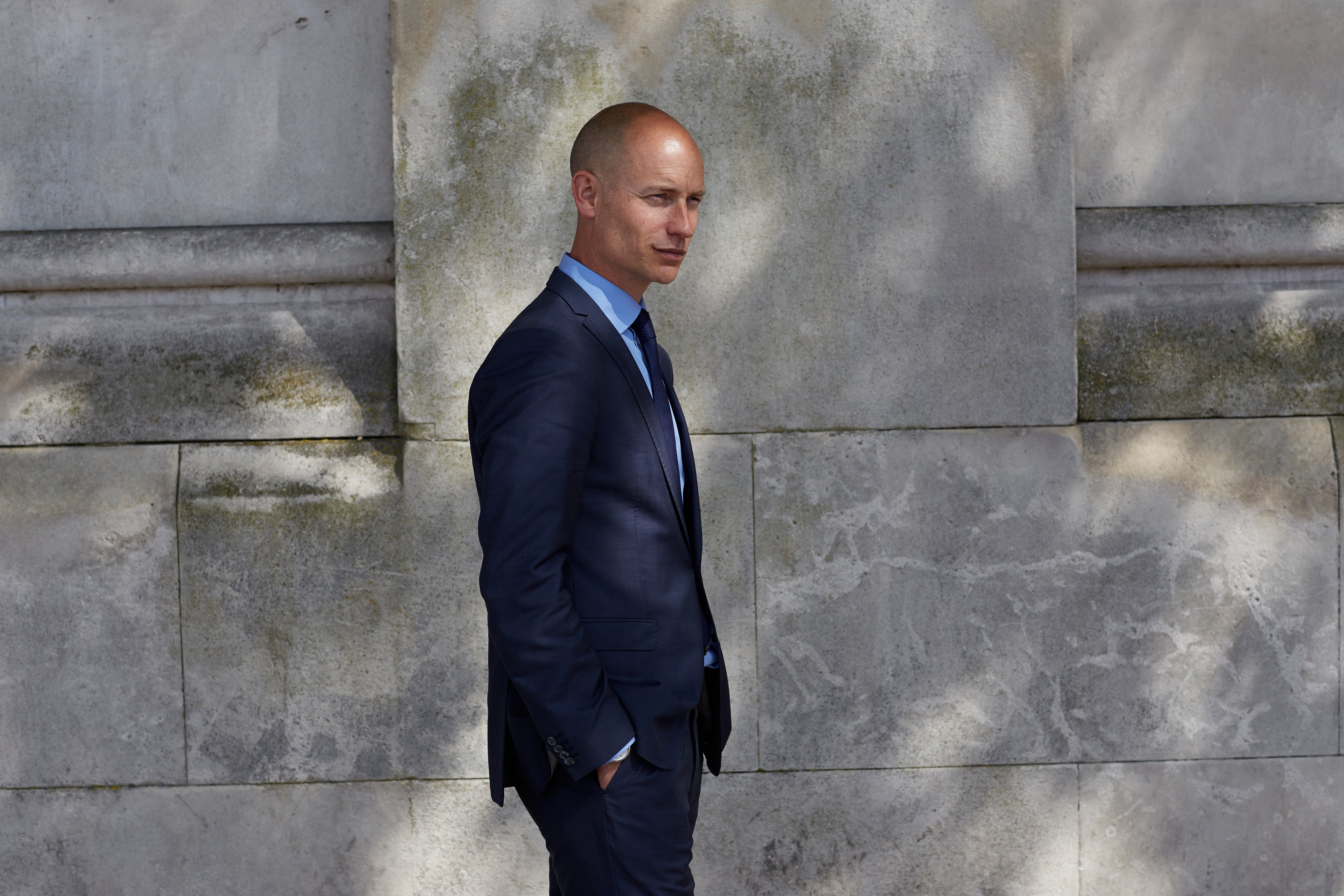
Stephen Kinnock smiles as he talks quietly about the death just before Christmas of his mother Glenys, aged 73, from Alzheimer’s. To Kinnock, she was “Mum”, to the world she was Baroness Kinnock of Holyhead, wife of Neil, Labour leader from 1983 to 1992.
“One of the lovely things that happened after Mum died is we heard those lovely tributes,” he says. “They were very moving and really helped me to deal with the grieving process. You access memories from before that horrible illness took hold, because for the last three or four years she was a very, very different person to before. That change is so all-consuming you find it quite difficult to remember what she had been like.”
Baroness Kinnock was diagnosed with the condition in 2017. “So you grieve twice,” says Kinnock, the Labour MP for Aberavon and shadow immigration minister, sitting in his offices in Portcullis House.
“Once when they die, but once when they’re still standing in front of you. A lot of deep, deep sadness came when Mum started slipping away mentally and suddenly wasn’t able to do all the things she used to do, from baking a cake to reading a book to being really engaged in conversations. You could see she was desperately trying to but she just couldn’t get the connections in her brain to work.”
Lord Kinnock devoted himself to caring for his wife of 56 years. “It was really, really hard, they’d obviously been inseparable for decades. But he seems to be doing pretty well now. He’s getting back into the world, definitely wanting to do things, which is great. He’s very active and engaged and sharp as a tack.”
His affection for his father is clear, yet Kinnock has previously made it plain it wasn’t fun growing up in the 1980s, with his red-haired Welsh dad lampooned every week on Spitting Image. Contemporaries at his west London comprehensive were “merciless”. As a young man, he wanted to “get out of my father’s shadow”, working at the European parliament and then all over the world for the British Council and the World Economic Forum.
Yet now, with Kinnock in line for the front bench after the election, does he seek political advice from his father? “We talk bits and pieces of politics, but it’s not the main topic of conversation. We had a pint together last night; I’d say 90 per cent of the conversation was about the rugby.”
Clearly, whether subconsciously or not, Kinnock’s drawn to politicians. He’s been married for 28 years to the former prime minister of Denmark, Helle Thorning-Schmidt, whose five years leading a wobbly centre-left coalition inspired the hit Scandi drama Borgen (Kinnock admits to watching season one but says the plotlines subsequently became “implausible”).
For years their careers meant the couple lived in separate countries, commuting to see each other at weekends. But now both are based in the UK, with Thorning-Schmidt holding various bigwig positions, including sitting on the board of social-media giant Meta.
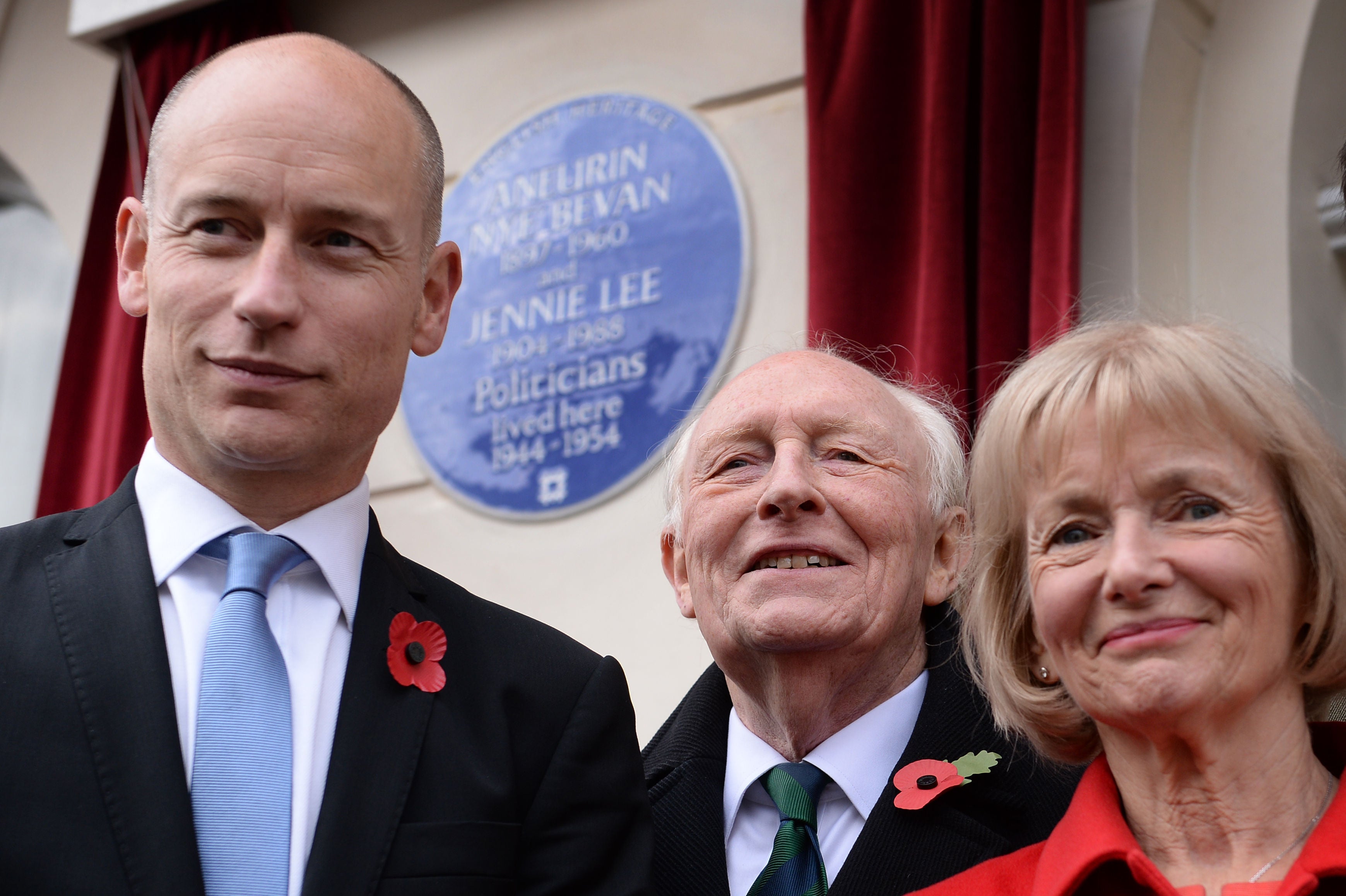
“We talk about politics – as you always talk about your job, but we chat a lot about her work – it’s fascinating. And we talk a lot about the kids.” They are Johanna and Milo, who came out in 2022 as non-binary but identifying as male, something Kinnock said took “real courage” and made him “very proud”. We meet before Rishi Sunak makes his transphobic jibe in the House of Commons but I can’t imagine Kinnock, who’s softly spoken but forceful, standing for such remarks.
Are the family friends with the new, young Danish king and queen? “We’ve met them, we’re not friends. We weren’t invited to the coronation – a remarkably low-key affair compared to ours, it seemed to involve just going out on a balcony and saying, ‘Hurrah!’ I definitely admired that.”
Kinnock was a 22-year-old Cambridge student when he witnessed his father lose the 1992 election, which Labour was thought to have in the bag, to John Major’s Conservatives by just 21 seats. “1992 was heartbreaking. It was so close and it was a sliding doors moment, both for the country and dad and my family.”
The steelworks are the beating heart of that community and workers and their families are suffering huge anxiety
Then in 2016, Kinnock – whose pro-European credentials couldn’t be plainer (his mother was an MEP), saw 60.1 per cent of his constituents vote for Brexit. After that he established Common Market 2.0, an ultimately unsuccessful campaign to keep the UK out of the EU politically, but in the single market.
“I was always opposed to a second referendum. But I wanted a soft Brexit – not forgetting that Leave campaigners like Nigel Farage and Daniel Hannan were saying all the way through the campaign, ‘Voting to leave doesn’t mean leaving the single market.’ Three months before the referendum, Farage was on Question Time extolling countries like Norway and Switzerland that had just that.”
Today, Stephen Kinnock has his hands full with another situation reminiscent of his father’s time as Labour leader when Britain was torn apart by miners’ and steelworkers’ strikes: the threatened loss of 2,800 jobs at the Port Talbot steelworks in the heart of his constituency.
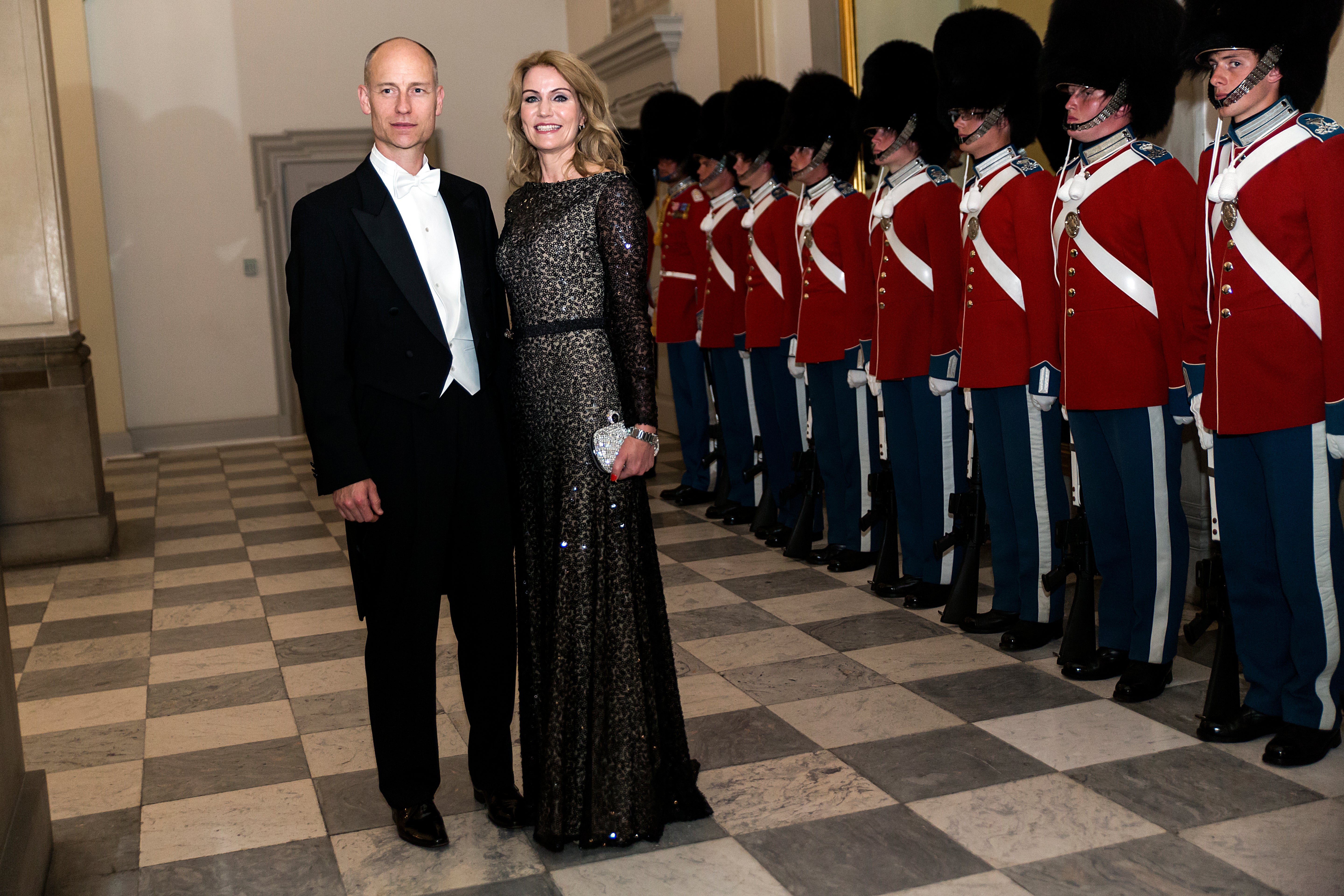
Global steel giant Tata, which owns the works, has announced that in order to comply with net zero requirements it will close its two blast furnaces, replacing them with more eco-friendly arc furnaces requiring far less labour. The unions are threatening industrial action. “The steelworks are the beating heart of that community and workers and their families are suffering huge anxiety,” he says.
This week Labour leader Sir Keir Starmer announced a U-turn on the party’s promised £28bn green investment drive, to the fury of many union leaders. Yet is Labour proposing no changes to the steel industry, which right now contributes 1.5 per cent of the UK’s carbon emissions?
“There’s absolutely no doubt climate change is creating massive problems for us, for the human race,” Kinnock agrees. At the same time, there’s a global demand “for cleaner, greener steel”, with both the EU and the US on the verge of introducing “punitive tariffs” for any import with a higher-than-average carbon footprint. In other words, the blast furnaces have to go.
Yet Kinnock is confident that it’s possible to “decarbonise without de-industrialising”. The “big weakness” he sees in Tata’s plan is that electric arc furnaces work by recycling scrap steel. This needs to be mixed into iron ore in either a blast furnace or a direct reduced iron (DRI) furnace powered by hydrogen or methane, which produces zero emissions. Yet that DRI furnace still needs to be constructed. While that happens, Tata will be importing ingredients for the mix from carbon-unfriendly India.
So Kinnock and the unions have presented “a compelling alternative” to Tata, to keep one blast furnace running (“the other’s reached the end of its life”) while a DRI furnace is built. This would mean “a few hundred” jobs disappearing “over a much longer period of time ... and those jobs would be managed and redeployed into other parts of the steelworks.”
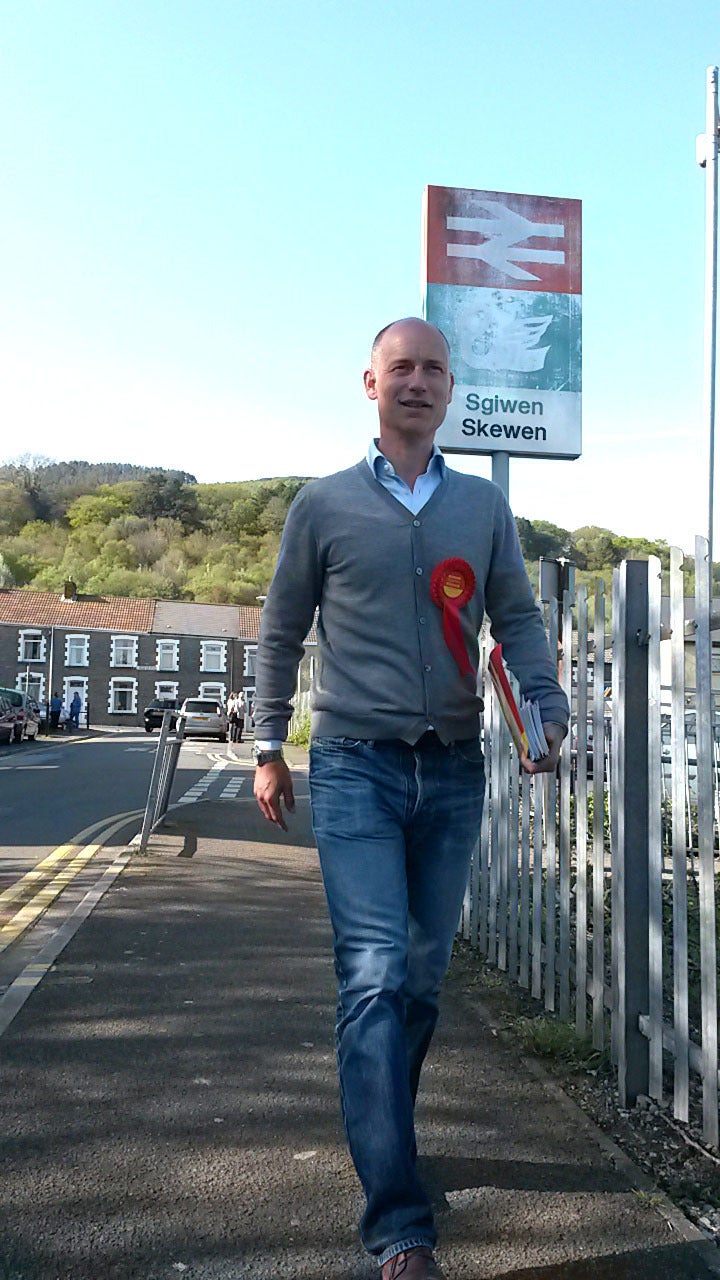
He’s frustrated at how the Tory government failed to plan for modernisation “that everyone knew was coming”. His argument is they need to “step up” because, if they don’t, companies like Tata Steel will invest elsewhere. “They’ve already invested more in their plant in the Netherlands, because the Dutch government was proactively supporting the industry. Our steel workers are not looking for charity, they’re just deeply frustrated at being made to play with one hand tied behind their back,” he says.
Nor can he understand why the government gave Tata £500m to build the electric arcs, with apparently no strings attached. “They’re paying taxpayers’ money to make 2,800 people redundant. Does that sound like a good deal to you? Why was this deal negotiated with apparently no questions about what this means for jobs, for long-term strategy and competitiveness?”
Generally, Kinnock’s contempt for the opposition couldn’t be clearer. “They’ve caused a shambles.” He admits that immigration, along with the economy, will be the issue at this year’s election, pointing out Sunak has failed in his promise to stop the boats, with 30,000 people crossing the Channel last year alone, and 56,000 asylum seekers stuck in inappropriate, emergency hotel accommodation at a cost of £8m a day. So what, as shadow minister for immigration, would he and Labour do differently?
Labour will smash criminal smuggler gangs who are trading in human misery through a new cross-border police unit and a new security partnership with Europol, so that we can stop the dangerous crossings in the first place
“We’re clear that migrant workers play an incredibly important role in our national economy and wider society, but the system needs to be firm, fair and well-managed,” he says. “Labour will smash criminal smuggler gangs who are trading in human misery through a new cross-border police unit and a new security partnership with Europol, so that we can stop the dangerous crossings in the first place.”
He promises to accelerate asylum processing and recruit 1,000 enforcement officers into a new returns unit, to deport people who have no right to be here.
Kinnock also points to the fact that work visas have doubled since the pandemic, something Labour will try to tackle through “a range of policies”: to persuade businesses to hire locally before looking abroad, including a commitment to reforming the apprenticeship levy; to support upskilling and skilling in key shortage areas; and removing the Conservatives’ 20 per cent wage discount for firms who hire migrant workers in occupations with staff shortages.
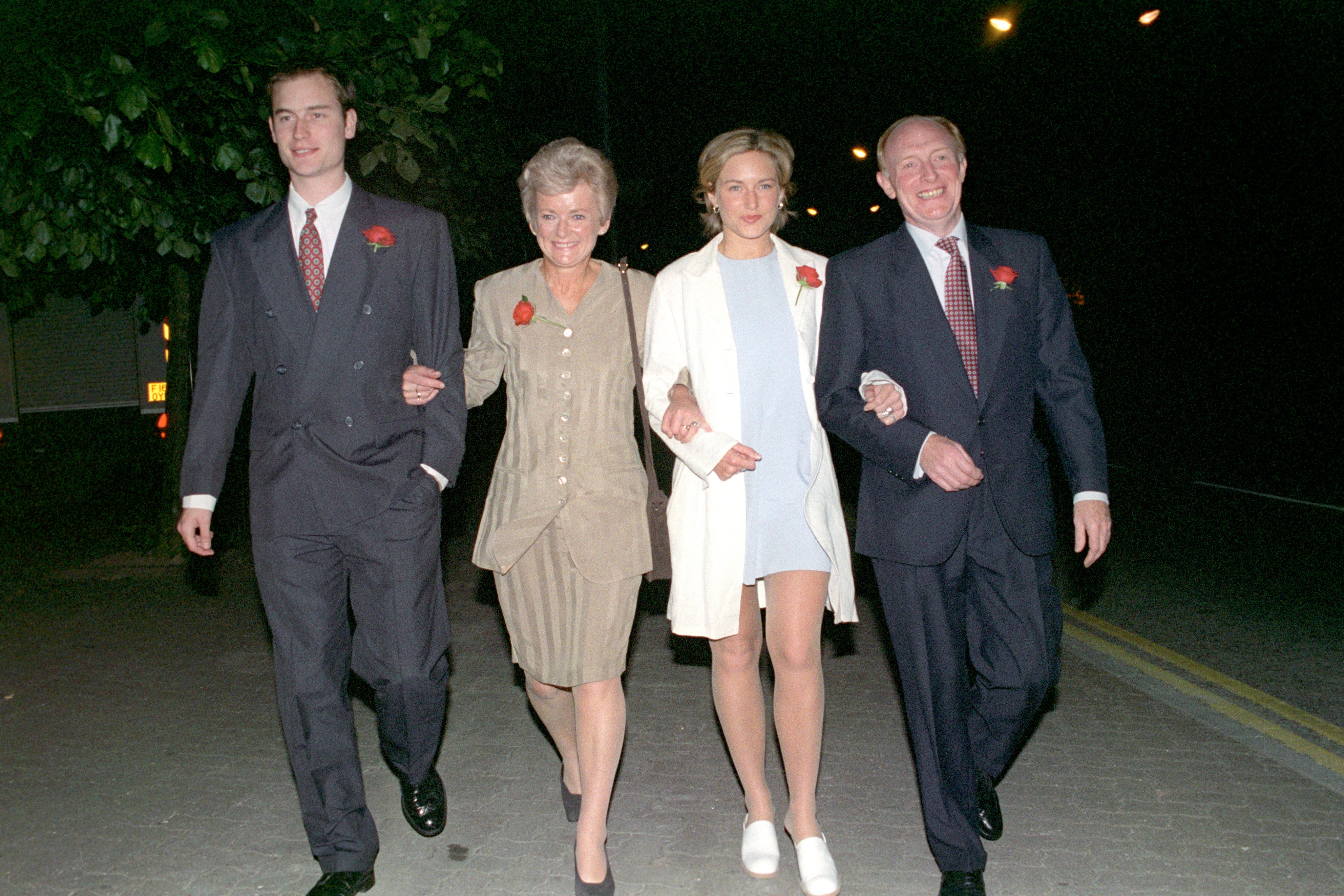
It’s fighting talk. Polls are pointing to a Labour win. So is the party’s mood as buoyant as it was in 1992? Then, an emotional Kinnock Sr took the stage at the infamous Sheffield rally shouting “Well, all right!” in what he later admitted might have appeared “triumphalist”.
“I don’t think you can compare 2024 to 1992,” Kinnock says firmly, clearly keen to avoid any suggestion of hubris. “Dad took over the party [from hard-left Michael Foot] after an absolutely appallingly bad result in 1983 and we eventually won [the election] in 1997. It took all those years to build up to that. So it’s extraordinarily impressive Keir has done that [taking over from Jeremy Corbyn] in just a few years. You can see how quickly we’ve got to where we are now.
“But we’re obviously learning the lessons of 1992 and making sure we don’t get ourselves into a position where everyone starts talking and thinking we might win. It’s going to be a very hard-fought election.” Does he relish that? Kinnock smiles. “We’re up for the fight.” Well, all right.
Subscribe to Independent Premium to bookmark this article
Want to bookmark your favourite articles and stories to read or reference later? Start your Independent Premium subscription today.





Join our commenting forum
Join thought-provoking conversations, follow other Independent readers and see their replies
Comments